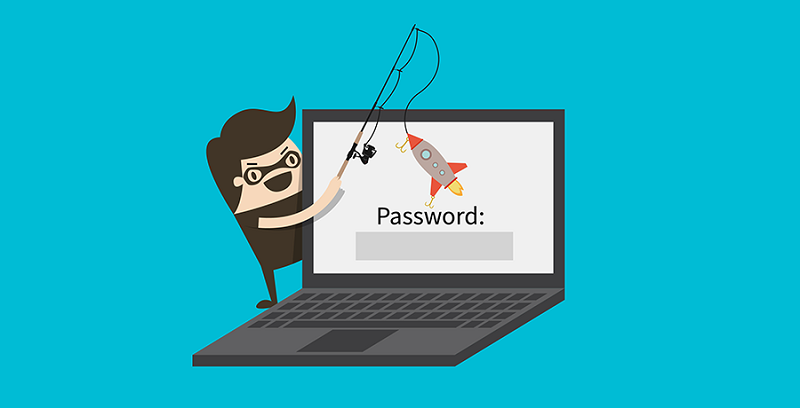What Phishing Looks Like!
.jpg?ver=3OP3qCIyoe5CpYx5w2sTYQ%3d%3d)
Updated February 2021; We’ve all seen recent news of cyber attacks on hundreds of thousands of networks worldwide, affecting major corporations and health systems. Cybercriminals don’t just target large networks. They also come after the personal user, through their digital devices. In 2021, Banks have been reporting record levels of theft especially on younger users whose details are being made available through social media.
Phishing is essentially communication designed to get you to divulge information such as personal or bank details or credit card numbers. You may get an email, message text or social media like Snapchat or TikTok purporting to be from a reputable source such as your bank or IT service provider.
This mail may ask you to update your details with them, designed to get your login or account numbers, to defraud you. You may also be asked to click on a link, which will instal malware on your device.

Top Three Phishing Tips
1. Message contains poor spelling and grammar
Grammar and spelling are important to respectable companies like your internet or network provider and your bank, so if something reads really badly, it’s a scam.
2. Never click on links in emails or texts that ask you to sign in to your account.
Close the email and go directly to the company’s website.
3. Don’t give your personal information to anyone online.
Just don’t, who are they? why are they asking? We wouldn’t do it on the street. They are relying on you being tired, stressed
No. 1 Lesson. Bank does not refund losses.
Click a link, giveaway your details, you were warned and the Bank doesn’t care, it happens so often, they can’t afford to refund, plus they have enough staff available to deal with customers who were ripped off. They will be polite, that’s it, sympathy, yes, money refunded, No. It is no 2008 now, it’s 2021, your fault, your loss. Plus they’ll suggest you consider Banking protection tools as well.
How does Phishing work?
Phishing emails require the recipient to do something, be it “update” their info, click on links or divulge bank or credit card details, all to be used to try and make money from your accounts or to use your details fraudulently.
An email may have your bank’s logo, for example, and a sender address that looks a bit like it could be from your bank.
Phishing emails used to be more obvious as they often included odd syntax or very bad spelling, but in recent times the scammers have been trying to look more “official” in their emails, though they often still include glaring spelling errors or very strange grammar. These signs can be a giveaway.
You may receive a phone call claiming to be from a service provider, looking for login details to update your account. These calls are designed to garner as much information from you, credit card details being a favourite among cybercriminals.
Fraudsters use any means possible to contact you, via email, messaging services or any way that they may be able to access vital information to access your funds.
At BeSecureOnline we often hear of people being caught off guard, who unthinkingly give away vital details, resulting in financial loss, but there are ways you can avoid phishing scams.
Know what to look out for & what to do.
Your bank will not contact you via email to ask you to update your details or give them account numbers or full logins. Your bank already has these details. Be very wary of any such email. Do not give out logins or details to anyone via email.
Emails claiming to be from a trusted source will have a recognisable email address. Scams will often come from an address that looks like your bank or subscription service, but something won’t be right. If you think the email address looks a bit off, don’t open it. Check with your bank first.
Don’t click links in emails that you weren’t expecting. You can hover over the link (never click!) to see the address of the link. If it looks strange, do not click on it.
You may receive an email that looks like it’s from your co-worker, family or friend. It may have their name on it. If the email is asking you for something unusual like transferring money to them, paying a supplier bill or asking you to click a link, be very cautious.
Their account may have been hacked or scammers may be using their name to draw you in.
Also, use common sense; ask yourself if this is the type of mail they would send? Is this how they usually talk? If it looks suspicious, just send an email to your friend – using the address you already have for them.
If you’re at work and you get an email supposedly from your boss, but which looks suspect, pick up the phone to make sure it’s from them.
If you get an email saying “urgent” or demanding “immediate action”, be very careful. Often scammers will prey on our willingness to make sure all of our accounts are up to date. Emails threatening to cut off service if details aren’t updated, need to double-check.
Slow down. Often hackers and cybercriminals prey on the fact that we lead busy lives and want to get through all our emails as quickly as possible. If we take a few moments to think about what an email, message or caller wants, we may not be too quick to give away our details.
Make sure you have up to date security on all your devices, to protect yourself from malware and scams.
Trust your instincts. If an email looks suspicious, it may well be. If you receive an email from a family member or friend who doesn’t seem like them, check it out by contacting them, other than replying to that email.
Do not click links in emails, that you’re not sure about. Think about your overall internet safety.
Last Thing. Report to the Police
Most people don’t bother but tell the Police. You have been hit, it is a crime so report it to the Police in your local station.
BeSecureOnline – Internet Security Software and Online Safety UK
At BeSecureOnline we provide the best internet security products available, which you can use on all your devices.
You can check out our products here.



